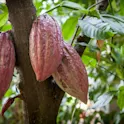
Featured news
29 Jan 2020
First release of genetically engineered moth could herald new era of crop protection
Self-limiting diamondback moth may pave the way for sustainable approach to pest control: Frontiers in Bioengineering and Biotechnology

Featured news
29 Jan 2020
Self-limiting diamondback moth may pave the way for sustainable approach to pest control: Frontiers in Bioengineering and Biotechnology

Featured news
29 Aug 2019
The USDA blueprint predicts genomic technologies will play an increasingly central role in global livestock production; Frontiers in Genetics

Featured news
25 May 2018
The powerful gene-editing tool CRISPR-Cas9 could help breed cacao trees with desirable traits such as enhanced resistance to diseases: Frontiers in Plant Sciences

Neuroscience
06 Mar 2018
Improvements to gene-editing techniques hold promise for inactivating the defective gene responsible for Huntington’s disease : Frontiers in Neuroscience

Life sciences
15 Sep 2017
A study in Frontiers in Bioengineering and Biotechnology shows that genetically engineered moss can rapidly produce artemisinin at an industrial scale.

Life sciences
27 Jul 2017
Researchers lay the foundation for genetically engineering a species of microalgae that live in corals to stop a global coral bleaching catastrophe

Sustainability
12 Sep 2016
by Emily Barker, Frontiersin.org Modified crops are nothing to be scared of and could be essential in solving the global sustainability crisis, explained Dr. James Lloyd, Deputy Field Chief Editor for Plant Biotechnology in the open-access journal Frontiers in Planet Science. Much of southern Africa is currently suffering consecutive seasons of drought, and farmers in Eastern Kenya have lost more than 80% of their crops due to lack of rain. These droughts, caused by climate change, could potentially leave 36m people across Africa facing hunger. However, there is hope in drought resistant crops. Over a five-year period, a total of 2.9 million farmers in 13 African countries saw their yields increase by 20% to 30% after sowing a variety of drought-tolerant hybrids. “I think that using this type of technology has huge potential to increase crop yields and I would be optimistic that we can increase food production as we need to in the next years or so,” he added. Making modified starch more ecofriendly Dr. Lloyd and his team, who are based in South Africa, have currently been working on increasing the amount of phosphate that’s bound to starch by manipulating plant genes. Modified starch is used by the paper […]

Health
26 Aug 2016
New understanding of the immune system and stem cell technology gets scientists closer to treating deadly fetal diseases even before birth
Get the latest research updates, subscribe to our newsletter